Neuroprotective
How to submit an article:
- Registered users can submit any published journal article that has a unique DOI (Digital Object Identifier) name or link to Research Hub.
- For example, you can paste the full DOI link:
https://doi.org/10.1109/5.771073or just the DOI name:10.1109/5.771073into the field above and click submit. - The person who is first to submit a valid article to Research Hub will forever be credited for it, and every article submission earns you +6 Research Points.
Also known as: Neuroprotection
Related Topics
Published research studies are articles that present the findings of original research that has undergone a peer-review process and has been made publicly available in scholarly journals, books or other media.
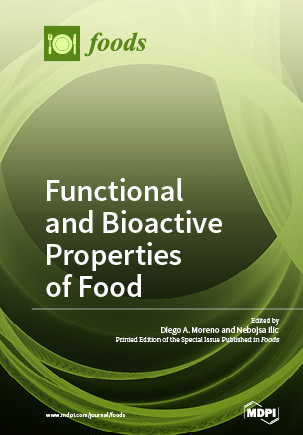
A Literature Review of the Pharmacological Effects of Jujube
2024 Jan 06 Foods Zhu D, Jiang N, Wang N, Zhao Y, Liu X
Review Article Cardiovascular Disease Neuroprotective JujubeJujube, a Chinese native plant with numerous active components, exhibits calming effects, nourishes blood, and strengthens the spleen and stomach, alongside promising neuroprotective and cardiovascular benefits.
Evaluation of possible neuroprotective effects of virgin coconut oil on aluminum‐induced neurotoxicity in an in vitro Alzheimer's disease model
2023 Nov 21 Journal of Applied Toxicology Demirel G, Sanajou S, Yirün A, Çakir DA, Berkkan A, Baydar T, et al.
Experimental Study Alzheimer's DiseaseVirgin coconut oil shows potential therapeutic promise against Alzheimer's disease by reducing key markers and enhancing neurotransmitter parameters.

Isolation, Identification, Activity Evaluation, and Mechanism of Action of Neuroprotective Peptides from Walnuts: A Review
2023 Sep 21 Nutrients Zhang L, Bai YY, Hong ZS, Xie J, Tian Y
Review Article Stress Oxidative Stress Neuroprotective WalnutThe bioactive peptides found in walnuts have potential neuroprotective effects, including reducing oxidative stress and neuroinflammation, and promoting autophagy and balance in the cholinergic system.
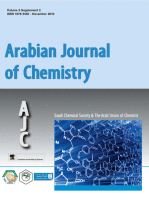
Amides from Zanthoxylum bungeanum Maxim. (Rutaceae) are promising natural agents with neuroprotective activities
2023 Jul Arabian Journal of Chemistry Li RL, Duan HX, Wang LY, Liang Q, Wu C, Peng W
it is clear that amides in Hua Jiao has a wide range of therapeutic effects in neurodegenerative diseases. At the same time, due to its wide source of raw material, it is an excellent source of natural drugs.
Review Article Neuroprotective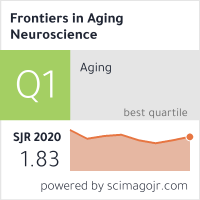
Honey on brain health: A promising brain booster
2023 Jan 17 Frontiers in Aging Neuroscience Zamri NA, Ghani N, Ismail CAN, Zakaria R, Shafin N
Review Article Honey Cognitive Function Memory Neuroprotective Brain HealthHoney exhibits multifaceted benefits for brain health, acting as a memory booster, neuroprotective agent, anti-stress, and anti-nociceptive substance, fostering potential therapeutic applications to enhance overall cognitive well-being.
Research insights are moderated by the Research Hub team and offer an at-a-glance overview of interesting research findings.

2024 Foods
Jujube, a Chinese native plant with numerous active components, exhibits calming effects, nourishes blood, and strengthens the spleen and stomach, alongside promising neuroprotective and cardiovascular benefits.
Review Article Cardiovascular Disease Jujube
A Literature Review of the Pharmacological Effects of Jujube
Zhu D, Jiang N, Wang N, Zhao Y, Liu X
2023 Journal of Applied Toxicology
Virgin coconut oil shows potential therapeutic promise against Alzheimer's disease by reducing key markers and enhancing neurotransmitter parameters.
Experimental Study Alzheimer's Disease
Evaluation of possible neuroprotective effects of virgin coconut oil on aluminum‐induced neurotoxicity in an in vitro Alzheimer's disease model
Demirel G, Sanajou S, Yirün A, Çakir DA, Berkkan A, Baydar T, et al.

2023 Nutrients
The bioactive peptides found in walnuts have potential neuroprotective effects, including reducing oxidative stress and neuroinflammation, and promoting autophagy and balance in the cholinergic system.
Review Article Oxidative Stress Stress Walnut
Isolation, Identification, Activity Evaluation, and Mechanism of Action of Neuroprotective Peptides from Walnuts: A Review
Zhang L, Bai YY, Hong ZS, Xie J, Tian Y

2023 Frontiers in Aging Neuroscience
Honey exhibits multifaceted benefits for brain health, acting as a memory booster, neuroprotective agent, anti-stress, and anti-nociceptive substance, fostering potential therapeutic applications to enhance overall cognitive well-being.
Review Article Brain Health Cognitive Function Honey Memory
Honey on brain health: A promising brain booster
Zamri NA, Ghani N, Ismail CAN, Zakaria R, Shafin N

2022 Molecules
Green tea's catechins demonstrate therapeutic effects against neurodegenerative diseases via anti-inflammatory, antioxidant actions, and activating diverse brain cellular pathways.
Review Article Alzheimer's Disease Cognitive Function Green Tea Multiple Sclerosis Neurodegenerative Diseases
Green Tea Catechins Attenuate Neurodegenerative Diseases and Cognitive Deficits
Afzal O, Dalhat MH, Altamimi ASA, Rasool R, Alzarea SI, Almalki WH, et al.
Review Articles
Review articles summarise and critically evaluate the current state of research on a specific topic or field by synthesising multiple primary research studies.

A Literature Review of the Pharmacological Effects of Jujube
2024 Jan 06 Foods Zhu D, Jiang N, Wang N, Zhao Y, Liu X
Review Article Cardiovascular Disease Neuroprotective JujubeJujube, a Chinese native plant with numerous active components, exhibits calming effects, nourishes blood, and strengthens the spleen and stomach, alongside promising neuroprotective and cardiovascular benefits.

Isolation, Identification, Activity Evaluation, and Mechanism of Action of Neuroprotective Peptides from Walnuts: A Review
2023 Sep 21 Nutrients Zhang L, Bai YY, Hong ZS, Xie J, Tian Y
Review Article Stress Oxidative Stress Neuroprotective WalnutThe bioactive peptides found in walnuts have potential neuroprotective effects, including reducing oxidative stress and neuroinflammation, and promoting autophagy and balance in the cholinergic system.

Amides from Zanthoxylum bungeanum Maxim. (Rutaceae) are promising natural agents with neuroprotective activities
2023 Jul Arabian Journal of Chemistry Li RL, Duan HX, Wang LY, Liang Q, Wu C, Peng W
it is clear that amides in Hua Jiao has a wide range of therapeutic effects in neurodegenerative diseases. At the same time, due to its wide source of raw material, it is an excellent source of natural drugs.
Review Article Neuroprotective
Honey on brain health: A promising brain booster
2023 Jan 17 Frontiers in Aging Neuroscience Zamri NA, Ghani N, Ismail CAN, Zakaria R, Shafin N
Review Article Honey Cognitive Function Memory Neuroprotective Brain HealthHoney exhibits multifaceted benefits for brain health, acting as a memory booster, neuroprotective agent, anti-stress, and anti-nociceptive substance, fostering potential therapeutic applications to enhance overall cognitive well-being.

Green Tea Catechins Attenuate Neurodegenerative Diseases and Cognitive Deficits
2022 Nov 06 Molecules Afzal O, Dalhat MH, Altamimi ASA, Rasool R, Alzarea SI, Almalki WH, et al.
Review Article Green Tea Cognitive Function Multiple Sclerosis Parkinson's Disease Neuroprotective Alzheimer's Disease Neurodegenerative DiseasesGreen tea's catechins demonstrate therapeutic effects against neurodegenerative diseases via anti-inflammatory, antioxidant actions, and activating diverse brain cellular pathways.
Clinical Trials
Clinical trials are research studies that involve people and are conducted to evaluate the safety and efficacy of new treatments or interventions, such as drugs, medical devices, or behavioural therapies.
Study Protocols
Published study protocols are detailed plans that outline the objectives, methodology, statistical analyses, and organisation of a research study that have been made publicly available for others to review and use as a reference.
Presentation Slides

Review Article
Jujube, a Chinese native plant with numerous active components, exhibits calming effects, nourishes blood, and strengthens the spleen and stomach, alongside promising neuroprotective and cardiovascular benefits.
Zhu D, Jiang N, Wang N, Zhao Y, Liu X

Experimental Study
Virgin coconut oil shows potential therapeutic promise against Alzheimer's disease by reducing key markers and enhancing neurotransmitter parameters.
Demirel G, Sanajou S, Yirün A, Çakir DA, Berkkan A, Baydar T, Erkekoğlu P

Review Article
The bioactive peptides found in walnuts have potential neuroprotective effects, including reducing oxidative stress and neuroinflammation, and promoting autophagy and balance in the cholinergic system.
Zhang L, Bai YY, Hong ZS, Xie J, Tian Y

Review Article
Honey exhibits multifaceted benefits for brain health, acting as a memory booster, neuroprotective agent, anti-stress, and anti-nociceptive substance, fostering potential therapeutic applications to enhance overall cognitive well-being.
Zamri NA, Ghani N, Ismail CAN, Zakaria R, Shafin N

Review Article
Green tea's catechins demonstrate therapeutic effects against neurodegenerative diseases via anti-inflammatory, antioxidant actions, and activating diverse brain cellular pathways.
Afzal O, Dalhat MH, Altamimi ASA, Rasool R, Alzarea SI, Almalki WH, Murtaza BN, Iftikhar S, Nadeem S, Nadeem MS, Kazmi I

Randomised Controlled Trial
The combined use of chamomile and saffron with usual medication enhances the efficacy against depression and ensures long term improvement.
Ahmad S, Azhar A, Tikmani P, Rafique H, Khan A, Mesiya H, Saeed H
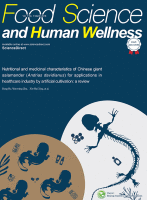
Systematic Review
Bioactive components in green tea have demonstrated potential neuroprotective effects and might play a role in preventing Alzheimer’s disease.
Lange KW, Lange KM, Nakamura Y

Review Article
Modern extraction techniques improve the extraction of bioactive compounds from black soybeans, which have potential use in functional foods and nutraceutical components.
Kumar M, Suhag R, Hasan M, Dhumal S, Radha , Pandiselvam R, Senapathy M, Sampathrajan V, Punia S, Sayed AAS, Singh S, Kennedy JF

Review Article
Morinda citrifolia (Noni) exhibits potential therapeutic activities for treating central nervous system disorders by targeting mainly receptors, enzyme transporters, and has neuroprotective activity.
Asiya Begum, Vijayapandi Pandy, Jithendra Chimakurthy, Rama Rao Nadendla
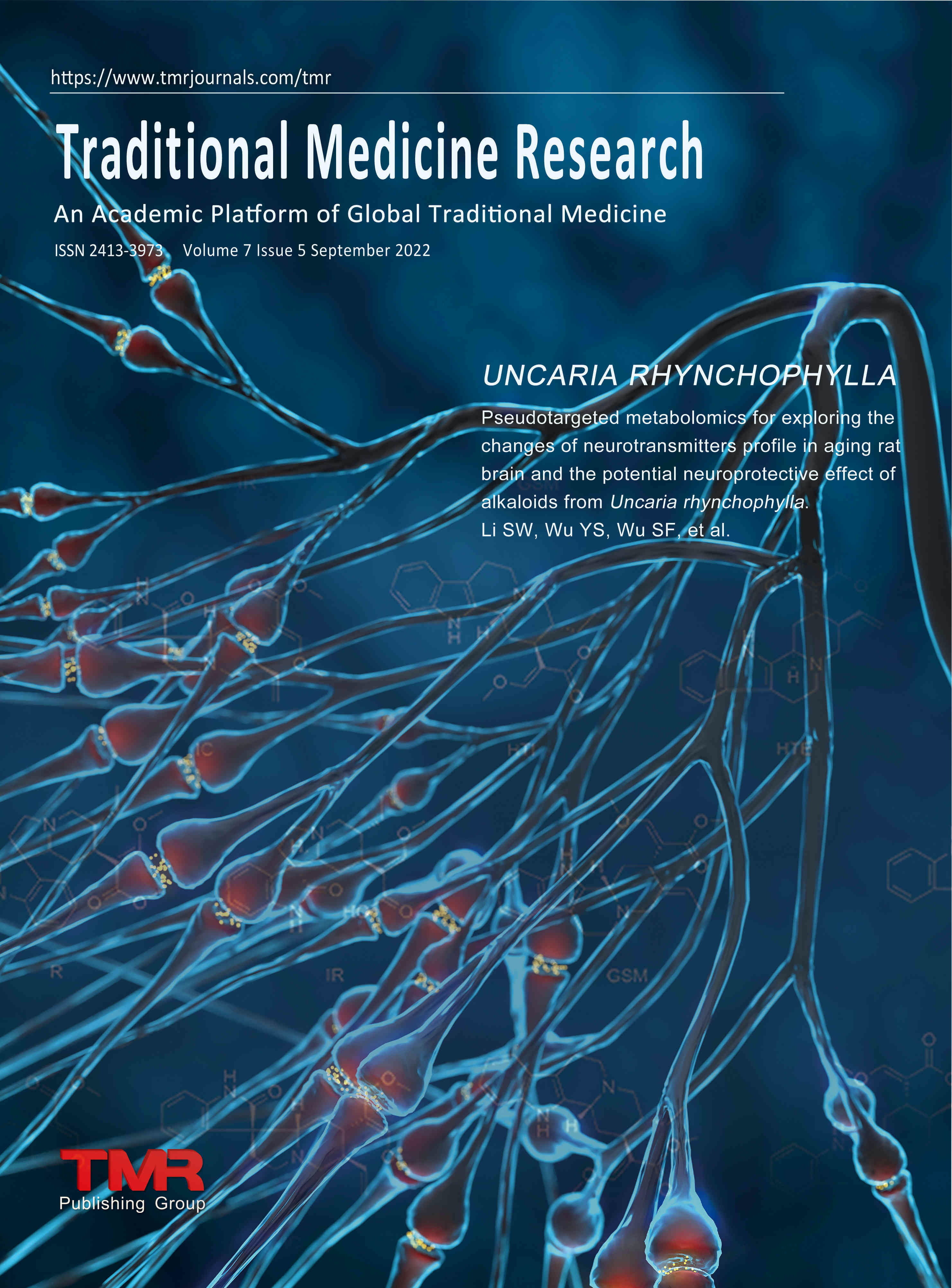
Theoretical Article
The jujube tree bears fruit endowed with substantial nutritional value and contains numerous phytochemical components with reported antioxidant, anti-cancer and neuroprotective properties.
Aafi E, Reza M, Mirabzadeh M

Review Article
Green tea and its chief bioactive component have the potential to improve certain female reproductive disorders such as endometriosis, polycystic ovary syndrome, and dysmenorrhea.
Kamal DAM, Salamt N, Zaid SSM, Mokhtar MH
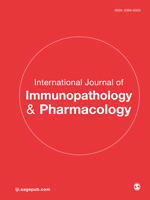
Systematic Review
Tremella polysaccharide is a safe natural active ingredient, which can be used in the prevention, treatment and rehabilitation of diseases.
Ma, X., Yang, M., He, Y., Zhai, C., & Li, C.

Review Article
Green tea, coffee, wine, and curry have beneficial health effects due to the polyphenols they contain, which possess both antioxidant and pro-oxidant properties.
Ohishi T, Fukutomi R, Shoji Y, Goto S, Isemura M
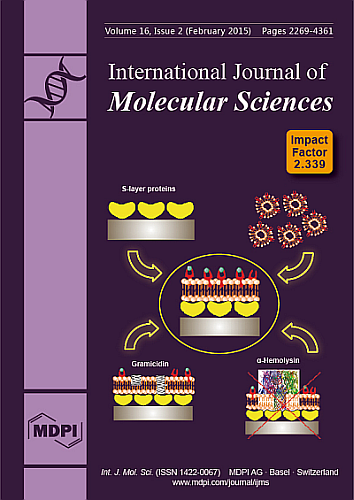
Review Article
Regular coffee consumption, due to its bioactive compounds, may have protective effects against chronic disorders and certain neurodegenerative conditions.
Socała K, Szopa A, Serefko A, Poleszak E, Wlaź P

Review Article
Green tea polyphenols can potentially protect against neurodegenerative disorders like Parkinson's Disease through antioxidant, anti-inflammatory, and neuroprotective actions.
Malar DS, Prasanth MI, Brimson JM, Sharika R, Sivamaruthi BS, Chaiyasut C, Tencomnao T
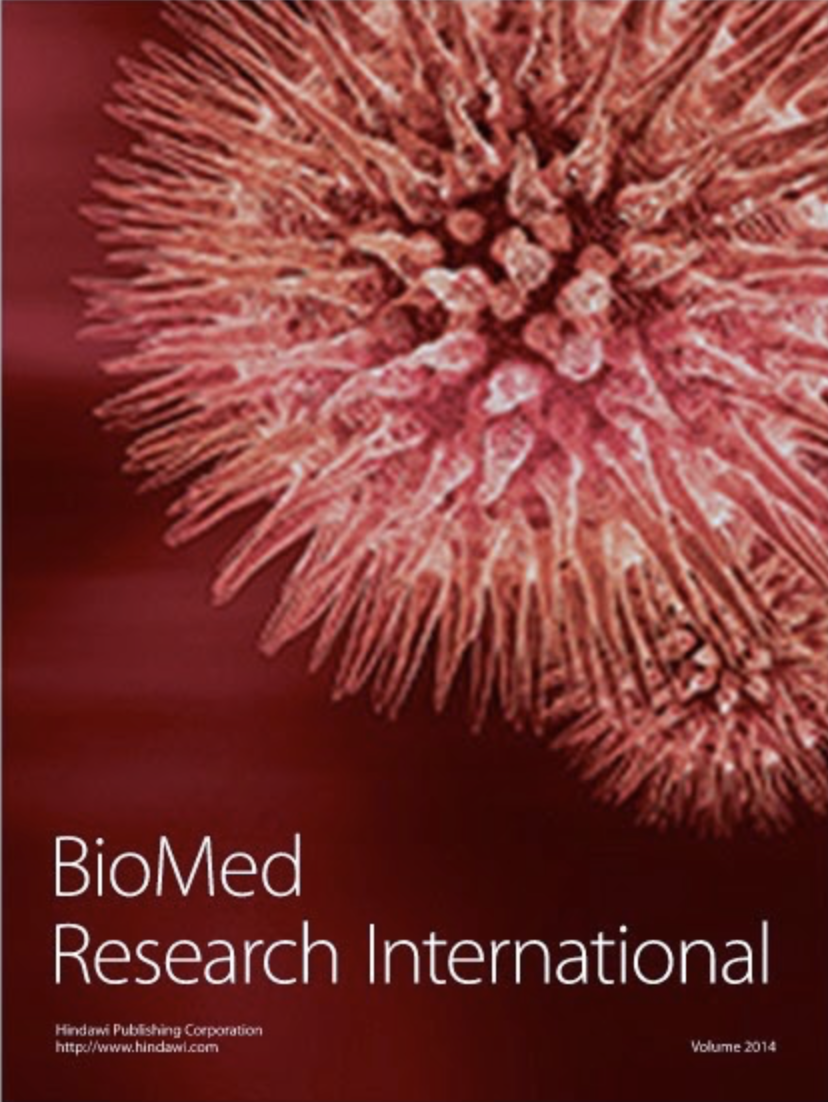
Systematic Review
Results from existing studies suggest that goji berry polysaccharide is a promising therapeutic agent, particularly in the management of liver disease, hyperlipidemia, and diabetes.
Kwok SS, Bu Y, Lo AC, Chan TC, So KF, Lai JS, Shih KC.

Systematic Review
Black pepper, beyond its culinary use, offers medicinal benefits like antimicrobial, antioxidant, anticancer, anti-diabetic, and anti-inflammatory properties mainly attributed to the compound piperine.
Takooree H, Aumeeruddy MZ, Rengasamy KRR, Venugopala KN, Jeewon R, Zengin G, Mahomoodally MF

Review Article
Jujube possesses neuroprotective activities, including protecting neuronal cells against neurotoxin stress, stimulating neuronal differentiation, increasing expression of neurotrophic factors, and promoting memory and learning.
Chen J, Liu X, Li Z, et al.
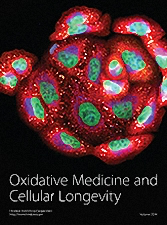
Review Article
Honeybee products like honey, propolis, and royal jelly have demonstrated potential benefits in treating metabolic diseases, cancers, and other illness types.
Pasupuleti VR, Sammugam L, Ramesh N, Gan SH

Experimental Study
Jujube-containing decoctions, used in Traditional Chinese Medicine, show neuro-protective and differentiating properties and enhance the function of multi-herbal concoctions.
Lam CTW, Gong AGW, Lam KYC, Zhang LM, Chen JP, Dong TTX, Lin HQ, Tsim KWK
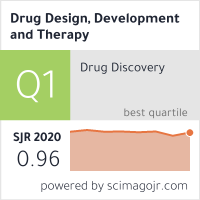
Review Article
A mixture of active polysaccharides from Goji berries have shown multiple pharmacological activities, including anti-aging, antioxidative, anti-fatigue, anticancer, anti-diabetic, anti-viral, hepatoprotective, cardioprotective, neuroprotective, hypolipidemic, radioprotective, anti-osteoporosis, anti-inflammatory, and immunomodulating effects.
Cheng J, Zhou Z, Sheng H, He L, Fan X, He Z, Sun T, Zhang X, Zhao RJ, Gu L, Cao C, Zhou S
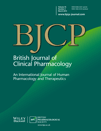
Review Article
Cocoa and chocolate, rich in antioxidant molecules like epicatechin, enhance brain health, stimulate brain perfusion, and reduce the risk of Alzheimer's disease and stroke.
Nehlig A
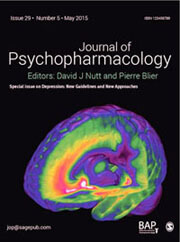
Review Article
Curcumin, a component of Indian spice turmeric, presents a potential natural treatment for depression, influencing neurotransmitters and protecting against several biological systems compromised in depression.
Lopresti AL, Hood SD, Drummond PD

Experimental Study
Tremella fuciformis, a mushroom, shows potential as a protective agent against neurodegenerative diseases like Alzheimer's by promoting cell growth and reducing toxicity.
Park KJ, Lee SY, Kim HS, Yamazaki M, Chiba K, Ha HC
Executive Summary
Write an executive summary in the form of a blog article on the topic of "Research into Chinese medicine treatment for Neuroprotective" summarising the research below and using language that can be easily understood by patients and avoiding medical jargon using a professional and caring tone of voice.
Write an executive summary in the form of a blog article on the topic of "Researched Chinese medicine treatments for Neuroprotective" summarising the research below in an objective and easy to understand way, and using language that can be easily understood by patients. Group the article into Chinese medicine treatments first, followed by nutrition and other treatments. Avoid using medical jargon and use a professional and caring tone of voice.
Write me a concise but easy to understand executive summary on the topic of "Chinese medicine treatments for Neuroprotective" based on the following research that I will give you. Your summary should be 2 paragraphs long in Australian English spelling and include references to the studies.
A Review Article published in 2024 in the journal Foods found that Jujube, a Chinese native plant with numerous active components, exhibits calming effects, nourishes blood, and strengthens the spleen and stomach, alongside promising neuroprotective and cardiovascular benefits. This study statistically evaluated and tracked the research status of Jujube over the past two decades. The research observed, among other things, the plant's traditional use in calming nerves, nourishing blood, and strengthening the spleen and stomach in traditional Chinese medicine. The study found that the Jujube has numerous effective components, including polysaccharides, phenols, and triterpene acids. The study delved into understanding how these components can provide a variety of pharmacological activities. Such activities include neuroprotection, as well as the prevention and treatment of cardiovascular diseases. The study also expounded comprehensively the molecular mechanisms and efficacies of Jujube. The research, therefore, provides an exhaustive appraisal of the pharmacological potentials of the Jujube plant and its prospective industrial relevance in food and pharmaceutical industries.
A Experimental Study published in 2023 in the journal Journal of Applied Toxicology found that Virgin coconut oil shows potential therapeutic promise against Alzheimer's disease by reducing key markers and enhancing neurotransmitter parameters. In this study, the SH-SY5Y cell lines were cultured in its regular growth medium which was then differentiated by reducing its fetal bovine serum content and adding retinoic acid. Further, brain-derived neurotrophic factor was added in unison with retinoic acid, completing the differentiation process by the seventh day. The study groups comprised of a control group, groups that received virgin coconut oil, Aluminum, both or neither, an Alzheimer model group, and a group replicating the Alzheimer model exposed to Aluminum and virgin coconut oil. The measurable aspects in this study included specific indicators of Alzheimer's disease like hyperphosphorylated Tau protein, amyloid beta 1-40 peptide, and amyloid precursor protein, oxidative stress parameters, and neurotransmitter-related parameters. In the results, it was revealed that virgin coconut oil was successful in reducing levels of amyloid beta and hyperphosphorylated Tau protein in the groups. This composition also seemed to decrease oxidative stress levels associated with Alzheimer's disease, delivering improvement in neurotransmitter parameters, which supports the hypothesis that virgin coconut oil can be therapeutic against this progressive neurological disorder.
A Review Article published in 2023 in the journal Nutrients found that The bioactive peptides found in walnuts have potential neuroprotective effects, including reducing oxidative stress and neuroinflammation, and promoting autophagy and balance in the cholinergic system. The research method used includes the development of various procedures to prepare, isolate, purify, and identify the neuroprotective peptides found in walnuts. Different evaluation approaches were then used to gauge the activity of these peptides within experimental setups, placing emphasis on potential oxidative stress reduction, neuroinflammation mitigation, autophagy promotion, gut microflora regulation, and cholinergic system balance enhancement. The discussion of the results suggests the confirmed neuroprotective benefits of walnut-derived peptides. These peptides showcased their ability to reduce oxidative stress, combat neuroinflammation, stimulate autophagy, and regulate gut microflora and the cholinergic system. Consequently, these findings highlight the value of walnuts in diet, and the potential for these peptides to be utilized as functional food ingredients promoting neurohealth.
A Review Article published in 2023 in the journal Frontiers in Aging Neuroscience found that Honey exhibits multifaceted benefits for brain health, acting as a memory booster, neuroprotective agent, anti-stress, and anti-nociceptive substance, fostering potential therapeutic applications to enhance overall cognitive well-being. This review scrutinizes 34 original articles exploring the impact of honey on brain health. Honey, traditionally known as a natural sweetener, emerges as a versatile substance with applications in nutrition, health supplementation, and brain health enhancement. The analysis identifies four key benefits: memory enhancement, neuroprotection, stress reduction, and pain alleviation. The review emphasizes the growing interest in understanding the mechanisms that underlie these effects, paving the way for potential therapeutic roles of honey in promoting cognitive well-being. The literature review underscores the significant role of honey in brain health research, shedding light on its diverse benefits, including memory improvement, neuroprotection, stress mitigation, and pain relief. The emphasis on unraveling the underlying mechanisms reflects a broader interest in establishing honey's therapeutic potential for enhancing overall brain health. This comprehensive exploration of honey's effects on cognition opens avenues for developing novel therapeutic strategies harnessing honey's natural properties.
A Review Article published in 2022 in the journal Molecules found that Green tea's catechins demonstrate therapeutic effects against neurodegenerative diseases via anti-inflammatory, antioxidant actions, and activating diverse brain cellular pathways. The research primarily evaluates the effect of polyphenolic compounds found in green tea, known as catechins, on neurodegenerative diseases. By conducting several interventional and observational studies on humans, the research explores the anti-cancer, anti-obesity, antidiabetic, anti-inflammatory, and neuroprotective properties of these compounds. The biological, pharmacological, antioxidant, and metal chelating abilities of catechins, particularly their influence on different cellular pathways within the brain, are intensively studied. The results elucidate that catechins exhibit multiple neuroprotective effects. Their anti-inflammatory and antioxidant properties help to inhibit excessive production of cytokines, and inflammatory pathways, while also controlling metal ions and free radicals. Researchers have further established that catechins may curb the phosphorylation of the tau protein and aggregation of amyloid beta, both key markers in neurodegenerative diseases. Additionally, these compounds show potential in reducing alpha-synuclein levels and augmenting dopamine levels. Hence, they significantly contribute to the prevention and treatment of neurodegenerative diseases, including Alzheimer's, Parkinson's, multiple sclerosis, and cognitive deficits.
A Randomised Controlled Trial published in 2022 in the journal Heliyon found that The combined use of chamomile and saffron with usual medication enhances the efficacy against depression and ensures long term improvement. This research was a randomized, open, blinded trial with 120 participants split evenly into a test and control group. After consent was obtained, a patient health questionnaire was filled out to determine depression scores. Participants in the test group received herbal tea sachets, containing 20 mg of chamomile and 1 mg of saffron, twice per day for a month in addition to their regular medications. Control group participants only received their standard allopathic medicine. Blood samples were taken both before and after the treatment period. The test showed significant improvement in depressive symptoms for both groups. However, in the test group, the addition of the herbal teas amplified the effect of the medications. The herbal adjuvant therapy reduced inflammatory markers and tryptophan levels in plasma, which increased the availability of tryptophan in the brain, a key aspect in managing depression. Consequently, the research concluded that inclusion of these herbs enhances the effectiveness of the conventional treatment against depression and provides long term benefits.
A Systematic Review published in 2022 in the journal Food Science and Human Wellness found that Bioactive components in green tea have demonstrated potential neuroprotective effects and might play a role in preventing Alzheimer’s disease. In this study, the researchers focused on the potential preventative effects of bioactive compounds, specifically (-)-epigallocatechin-3-gallate, present in tea, on Alzheimer's disease (AD). This interest was based on recognition of the importance of lifestyle-related factors, including diet, in the primary prevention of AD. They compiled and analyzed the findings from various preclinical studies which pointed towards the neuroprotective qualities of these compounds. The results reveal an association between the consumption of green tea and a reduction in the risk of age-related cognitive decline and AD. However, these results do not establish a causal relationship. That is, while people who drink green tea appear to have lower rates of AD, the study cannot confirm that green tea consumption is the reason for this reduced prevalence. The researchers also emphasized that while the preventative effects of green tea were deduced from preclinical (animal) studies, human-based clinical trials yielded unsatisfactory evidence regarding tea's preventive or therapeutic effect on AD.
A Review Article published in 2022 in the journal Critical Reviews in Food Science and Nutrition found that Modern extraction techniques improve the extraction of bioactive compounds from black soybeans, which have potential use in functional foods and nutraceutical components. These modern extraction techniques involve the application of technologies such as microwaves, ultrasounds, and enzymes. Contrary to traditional methods that depend on simple yet toxic solvents, these contemporary options yield higher amounts of bioactive substances from black soybeans, are quicker, and are less damaging to the environment. The exact bioactive compounds extracted include anthocyanins, phenolic acids, isoflavones, and flavones, among others. Researchers discovered that black soybeans, and specifically their seed coat, are rich in various bioactive compounds. These compounds have been reported to possess numerous health benefits, showing antioxidant, anti-cancer, anti-diabetic, anti-obesity, anti-inflammatory, cardio and neuroprotective activities. The study also explores how these soybean extracts have been used in the manufacture of food products like noodles, in the development of biodegradable films with pH sensitivity, and in therapeutic applications such as promoting wound healing and alleviating inflammation. The comprehensive review, therefore, serves as a handy reference for food manufacturers and scientists, showcasing the vast potential of black soybeans in the development of functional foods and nutraceuticals.
A Review Article published in 2022 in the journal Journal of Pharmaceutical Negative Results found that Morinda citrifolia (Noni) exhibits potential therapeutic activities for treating central nervous system disorders by targeting mainly receptors, enzyme transporters, and has neuroprotective activity. The research involved gathering existing scholarly literature across databases such as ResearchGate, Medline, and Wikipedia. It focused on the impact of the Noni plant on receptors, enzyme transporters, and the various methods for evaluating CNS disorders. The antidepressant effects of the Morinda citrifolia fruit were assessed in vitro using Monoamine Oxidase (MAO) A and B bioassays. The antipsychotic activity was determined by measuring the degree of inhibition of dopaminergic receptors by the Methanolic extract of Noni. In the discussion of the results, the findings suggested that Morinda citrifolia fruit has potential therapeutic benefits. The Noni fruit appears to work synergistically due to its constituent active compounds that inhibit MAOA and MAOB enzymes, displaying antidepressant activity. Moreover, it showed an antipsychotic activity attributed to the Methanolic extract of Noni inhibiting dopaminergic receptors. Other notable activities include anti-craving for alcohol dependence, judged by CPP test, anxiolytic activity exhibited by the administration of benzodiazepine and MMC in mouse models, and also neuroprotective ability by reducing brain impairment caused by reperfusion injury.
A Theoretical Article published in 2022 in the journal Traditional Medicine Research found that The jujube tree bears fruit endowed with substantial nutritional value and contains numerous phytochemical components with reported antioxidant, anti-cancer and neuroprotective properties. The research implemented an analysis of the jujube tree, its fruit, and its long history of usage in traditional medicine, focusing primarily on its use in traditional Persian and Chinese medicines. The varied geographical distribution of the tree was studied, especially its presence in tropical and subtropical regions across Europe and Asia. Researchers took into account the tree’s resilience to soil salinity and alkalinity as part of its general characteristics. The core of the study involved an in-depth investigation into the nutritional composition and pharmacological properties of the jujube fruit. The fruit's contents were categorized into proteins, minerals, vitamins, organic acids, and carbohydrates. Furthermore, a range of phytochemical components such as polyphenols, flavonoids, terpenoids, anthocyanins, alkaloids, and carotenoids were identified. Research noted both the fruit's nutraceutical and cosmeceutical potential. It also explored the medicinal properties of all elements of the plant, not just the fruit. The physiological impacts of the jujube were also evaluated across various medical contexts, seeking to understand its impact on different organs and tissues, as well as its influence on various health conditions and concerns. Culminating in the identification of antioxidant, anti-cancer, antimicrobial, neuroprotective, cardioprotective, hepatoprotective properties. Noteworthy, are also its health-promoting effects, with strong references to anti-aging properties.
A Review Article published in 2021 in the journal Molecules found that Green tea and its chief bioactive component have the potential to improve certain female reproductive disorders such as endometriosis, polycystic ovary syndrome, and dysmenorrhea. The study reviews the beneficial effects of green tea and its major bioactive component on female reproductive disorders, focusing on endometriosis, polycystic ovary syndrome (PCOS), and dysmenorrhea. The research highlights the role of catechins, phenolic compounds found in tea, which have been known for their health benefits due to their high antioxidative properties. The green tea or its derivative works on endometriosis through anti-angiogenic, anti-fibrotic, anti-proliferative, and proapoptotic mechanisms. In the discussion of results, it was found that green tea not only enhances ovulation and reduces cyst formation in PCOS, but it also ameliorates generalised hyperalgesia, reduces plasma corticosterone levels, and mitigates uterine contractility in dysmenorrhea. Despite the promising findings, the study acknowledges the need for more comprehensive clinical trials to fully translate these findings into clinical practice.
A Systematic Review published in 2021 in the journal International Journal of Immunopathology and Pharmacology found that Tremella polysaccharide is a safe natural active ingredient, which can be used in the prevention, treatment and rehabilitation of diseases. Tremella polysaccharide is a full-functioning active substance, and any of its activities are not independent, but complementary to other activities. For example, Tremella polysaccharides can participate in various physiological activities such as type II diabetes, cardiovascular disease, metabolic syndrome, inflammation and aging by regulating the expression of SIRT1 protein, which is in line with the guidelines of eastern medicine to maintain the dynamic balance of the human body through conditioning. Tremella polysaccharides are non-toxic and harmless natural ingredients that can be used for long-term contact with the human body by smearing or oral administration. It means that Tremella polysaccharides are suitable for the daily health needs of sub-healthy people and can be widely used in food, medicine and daily chemical products.
A Review Article published in 2021 in the journal Molecules found that Green tea, coffee, wine, and curry have beneficial health effects due to the polyphenols they contain, which possess both antioxidant and pro-oxidant properties. The research leverages epidemiological studies, clinical trials, cell-based studies and animal tests to examine the effects of green tea, coffee, wine, and curry -- and their key polyphenols -- on human health. The polyphenols investigated include epigallocatechin gallate in green tea, chlorogenic acid in coffee, resveratrol in wine, and curcumin in curry. The study concentrates on the workings of these polyphenols, primarily focusing on reactive oxygen species (ROS), and how they perform both anti- and pro-oxidant functions, fundamentally influencing different enzymes and factors with health contributions. In the discussion of the results, it is mentioned that the anti-oxidative actions of these polyphenols assist in the scavenging of ROS and the downregulation of the nuclear factor-κB, yielding beneficial anti-inflammatory effects. Conversely, their pro-oxidant actions appear to elevate ROS production, encouraging the activation of 5'-AMP-activated protein kinase that regulates different enzymes and factors for health improvement. However, the exact mechanism of how these polyphenols exhibit either pro- or anti-oxidant effects remains unclear. Also, the research underscores that while many studies note their health benefits, some others show no positive effects on health conditions such as obesity, suggesting that outcomes could be influenced by various study factors.
A Review Article published in 2020 in the journal International Journal of Molecular Sciences found that Regular coffee consumption, due to its bioactive compounds, may have protective effects against chronic disorders and certain neurodegenerative conditions. The paper evaluates the neuroprotective potential of the main bioactive elements in coffee: caffeine, chlorogenic acid, caffeic acid, trigonelline, kahweol, and cafestol. The analysis is focused on the coffee beverage as a complex mixture of these bioactive compounds. The comprehensive study includes in vitro and in vivo preclinical tests to determine the specific health benefits each of these compounds can offer. The results indicate that regular coffee intake may have defensive effects against a variety of enduring disorders; including cardiovascular disease, type 2 diabetes, obesity, and some forms of cancer. Additionally, an interesting correlation is found between coffee consumption and a lower risk of developing certain neurodegenerative conditions such as Alzheimer's disease, Parkinson's disease, and dementia. The study also highlights that regular coffee intake could possibly lower the risk of stroke. However, the study mentions that the mechanisms enabling these effects are yet to be fully understood.
A Review Article published in 2020 in the journal Molecules found that Green tea polyphenols can potentially protect against neurodegenerative disorders like Parkinson's Disease through antioxidant, anti-inflammatory, and neuroprotective actions. The study synthesized existing research on the potential neuroprotective benefits of green tea polyphenols, particularly in Parkinson's disease. The papers highlighted were drawn from numerous sources and focused on the antioxidant, anti-inflammatory, and neuroprotective attributes of these compounds. Green tea's potential protection against free radicals, inflammation, and neuro-damage were considerable points of interest. The analysis also took into account the complex physiological, social, and cultural factors that could influence the effectiveness of green tea polyphenols in human subjects. Through the evaluation of numerous in vivo studies, researchers came to intriguing conclusions about the overall mechanism of green tea. The studies assessed explored how green tea consumption could mitigate neurodegenerative disorders like Parkinson's. In these analyses, investigators refined their understanding of how green tea and its polyphenols function from a neuroprotective standpoint. This information helps us better understand the advantages of green tea consumption and its potential role in preventing neurodegeneration.
A Systematic Review published in 2019 in the journal BioMed Research International found that Results from existing studies suggest that goji berry polysaccharide is a promising therapeutic agent, particularly in the management of liver disease, hyperlipidemia, and diabetes. Lycium barbarum polysaccharides (LBPs) have a number of promising therapeutic uses in the liver disease, metabolic disorders, immune dysfunction, aging, neuroprotection, cancer, and ocular surface diseases. These potential applications should be thoroughly assessed through further in vivo studies and ultimately in well-designed randomized controlled clinical trials. One major limitation of current research is a lack of standardization and quality control for the LBP used. The availability of research-grade LBP, of consistent concentration, will help promote further interest and robust research work in this field.
A Systematic Review published in 2019 in the journal Critical Reviews in Food Science and Nutrition found that Black pepper, beyond its culinary use, offers medicinal benefits like antimicrobial, antioxidant, anticancer, anti-diabetic, and anti-inflammatory properties mainly attributed to the compound piperine. The study was a systematic review of existing scientific data on the traditional uses, composition, and pharmacological attributes of black pepper. Information was gathered from recognized databases such as Science Direct and Google Scholar, as well as books and other online resources. The study primarily focused on literature in English and evaluated traditional medicinal uses of black pepper in various regions, the common ailments it was used to address, and the preferred modes of preparation. The results of the study affirm the significant medicinal qualities of black pepper. Its antimicrobial activity was demonstrated against various pathogens, and it showed strong antioxidant effects against several reactive oxygen and nitrogen species. The research also highlighted the anticancer effects of black pepper on cell lines from various sites including breast, colon, cervix, and prostate. Furthermore, the benefits of black pepper in managing diabetes and lipid levels in the body were also confirmed. It was also noted for its anti-inflammatory, analgesic, anticonvulsant, and neuroprotective effects. Piperine was identified as the major bioactive compound in black pepper which is responsible for these beneficial effects along with other compounds such as piperic acid, piperlonguminine, and more.
A Review Article published in 2017 in the journal Evidence-Based Complementary and Alternative Medicine found that Jujube possesses neuroprotective activities, including protecting neuronal cells against neurotoxin stress, stimulating neuronal differentiation, increasing expression of neurotrophic factors, and promoting memory and learning. Jujube possesses neuroprotective activities, including protecting neuronal cells against neurotoxin stress, stimulating neuronal differentiation, increasing expression of neurotrophic factors, and promoting memory and learning. Flavonoid, cAMP, and jujuboside could be the potential bioactive ingredients to account for the aforesaid biological activities. These findings imply that jujube is a potential candidate for development of health supplements for prevention and/or treatment of neurological diseases.
A Review Article published in 2017 in the journal Oxidative Medicine and Cellular Longevity found that Honeybee products like honey, propolis, and royal jelly have demonstrated potential benefits in treating metabolic diseases, cancers, and other illness types. The research reviewed the effects and mechanisms of honey, propolis, and royal jelly on various health conditions. Their uses in correlation to metabolic diseases and different types of cancers were meticulously explored. Honey was examined for its microbial inhibiting and wound healing properties and its role in treating other diseases. The study found that honey demonstrated potential benefits such as microbial inhibition, wound healing, and effects on other diseases. Propolis was reported to have various health benefits related to gastrointestinal disorders, allergies, and issues related to gynecology, oral health, and dermatology. Royal jelly displayed protective effects on reproductive health, neurodegenerative disorders, wound healing, and aging. While these were potential benefits and effects elucidated, the specific mechanisms of action remain undetermined.
A Experimental Study published in 2016 in the journal Journal of Ethnopharmacology found that Jujube-containing decoctions, used in Traditional Chinese Medicine, show neuro-protective and differentiating properties and enhance the function of multi-herbal concoctions. The research first studied the effect of three chemically standardized jujube-containing decoctions named Guizhi Tang, Neibu Dangguijianzhong Tang and ZaoTang on cultured PC12 cells. To do this, they assessed the protein expressions of neurofilaments following the herbal treatment through a process known as western blot. The research team also observed neurite outgrowth in the PC12 cells post-treatment using a light microscope equipped with phase-contrast condenser and SPOT imaging software. Furthermore, they evaluated the protective effect of the herbal extracts on tBHP-induced cytotoxicity using an MTT assay. Additionally, they transfected a luciferase reporter construct carrying repeats of antioxidant response elements and a downstream reporter gene into PC12 cells to understand if the decoctions could trigger transcriptional activation of these response elements. The mRNA expression of antioxidant enzymes following the herbal treatment was analyzed via quantitative real-time PCR. The study found that these jujube-containing decoctions exhibited similar protective and beneficial properties for the brain. The decoctions were observed to induce the protein expression of neurofilaments and cause neurite outgrowth. These herbal treatments were found to protect PC12 cells against oxidative stress-induced apoptosis in a dose-dependent manner. Further, they triggered the mRNA expressions of essential anti-oxidation genes, resulting in the activation of antioxidant response elements. This study highlights the enhancement effect of jujube in a multi-herbal decoction, demonstrating its neuro-protective and differentiating property.
A Review Article published in 2014 in the journal Drug Design, Development and Therapy found that A mixture of active polysaccharides from Goji berries have shown multiple pharmacological activities, including anti-aging, antioxidative, anti-fatigue, anticancer, anti-diabetic, anti-viral, hepatoprotective, cardioprotective, neuroprotective, hypolipidemic, radioprotective, anti-osteoporosis, anti-inflammatory, and immunomodulating effects. The mechanisms for these beneficial effects are multifaceted, involving a number of signaling molecules and pathways. A better understanding of how LBPs act on these signaling pathways and molecules can improve our knowledge on glycobiology. Further studies using systems pharmacology approaches such as proteomic and metabolomic analysis are needed to uncover the molecular target networks of LBPs. Despite the importance of Goji in the traditional Chinese medicine and increased popularity in Western countries, clinical safety data on LBPs are sparse. A safe and optimal use of herbal medicines like LBPs requires a full understanding of their pharmacokinetics, side effects, and mechanisms of action. The dose–response and dose–toxicity relationships of LBPs should be established in animal and human studies. It is essential to develop new formulations to ensure the maximum efficacy and effectiveness and minimum side effects of LBP-related health products.
A Review Article published in 2013 in the journal British Journal of Clinical Pharmacology found that Cocoa and chocolate, rich in antioxidant molecules like epicatechin, enhance brain health, stimulate brain perfusion, and reduce the risk of Alzheimer's disease and stroke. The study involved taking a comprehensive look at the substances contained in cocoa powder and chocolate, their absorption into the brain, and their resulting stimulatory effects on multiple areas of the brain, particularly those connected to comprehension and memory. It also delved into the beneficial effects of epicatechin, a flavonoid found abundantly in cocoa and chocolate, which showed improvements in cognition in both animals and humans. Interestingly, the research showed that the consumption of chocolate could induce mood enhancement, elaborating on its common consumption during times of emotional stress. The study further investigated flavonoids' preservation of cognitive abilities in rats during aging, noting the reduced risk of developing Alzheimer's disease and the decreased likelihood of stroke in humans, demonstrating their wider effects beyond just mood enhancement. The research then looked into flavonoids' interactions within the various signaling pathways related to proteins and lipids in the brain, shedding light on how they inhibit neuron death from neurotoxic elements like oxygen radicals, all while promoting neuron survival and synaptic plasticity. The overall intent of the research was to gather and examine the available data regarding the effects of cocoa and chocolate on brain health and cognitive capacities.
A Review Article published in 2012 in the journal Journal of Psychopharmacology found that Curcumin, a component of Indian spice turmeric, presents a potential natural treatment for depression, influencing neurotransmitters and protecting against several biological systems compromised in depression. The research methodology involved an extensive review of the varying influences and effects of curcumin on systems implicated in depression. These included neurotransmitter systems like serotonin and dopamine which are critical to mood regulation. The study also explored the effects of curcumin on hypothalamus-pituitary-adrenal disturbances, famously associated with stress response and mood disorders. In terms of results, curcumin demonstrated promising potential as an antidepressant in animal models of depression. Additionally, it was found to help moderate damage to neurological systems and intestinal permeability, both of which are often compromised in major depressive disorders. It also exhibited properties that could help lower inflammation and protect against oxidative stress and mitochondrial damage. Together, these findings position curcumin as a promising natural treatment for depression.
A Experimental Study published in 2007 in the journal Mycobiology found that Tremella fuciformis, a mushroom, shows potential as a protective agent against neurodegenerative diseases like Alzheimer's by promoting cell growth and reducing toxicity. The methodology involved testing the neurotrophic effects of Tremella fuciformis, a mushroom, using a hot water extract of it. This testing was done by utilizing microscopic monitoring of its ability to encourage neurite outgrowth in PC12h cells, essentially examining the mushroom's ability to stimulate nerve growth. The researchers compared the effectiveness of the extract to other natural substances that had previously been studied in promoting nerve growth. In the discussion of results, the study demonstrated that the hot water extract of T. fuciformis was highly effective at promoting neurite outgrowth in PC12h cells. This effectiveness outperformed other natural substances in previous studies. Moreover, when the cells were treated with T. fuciformis extract before being exposed to a β-amyloid peptide treatment (which is associated with Alzheimer's disease), the extract significantly reduced the toxicity. This suggests the potential application of T. fuciformis as a preventative measure in counteracting neurodegenerative diseases such as Alzheimer's.
Moderation Tools
Topic
Sign In
Users not signed in are limited to viewing the 5 most recent items of content.